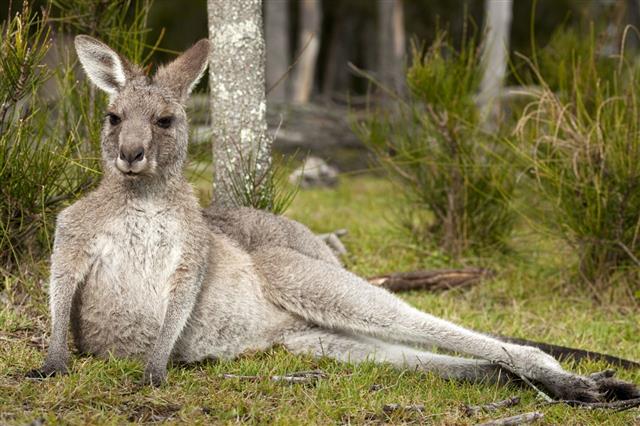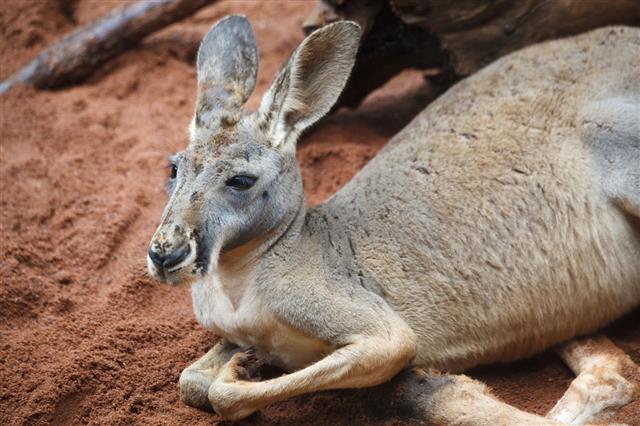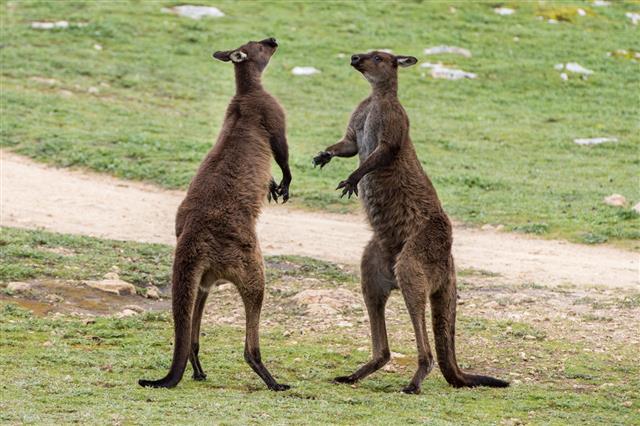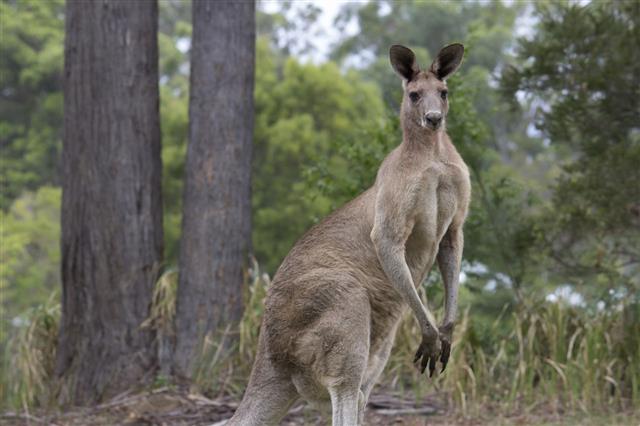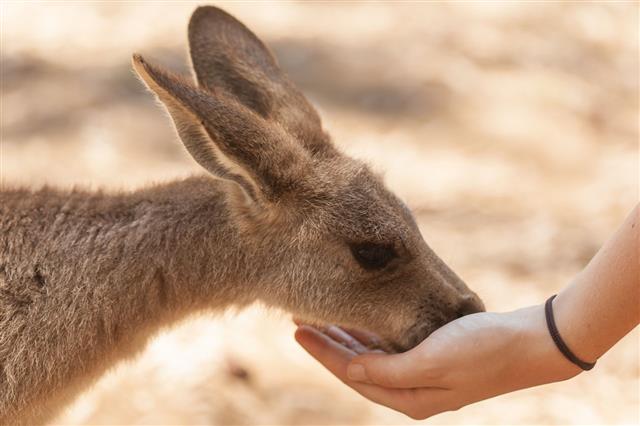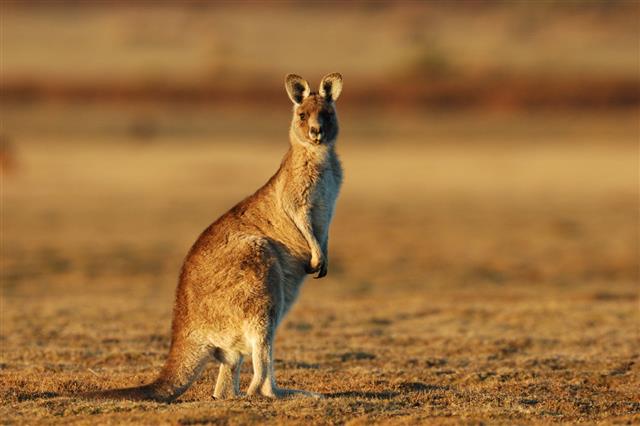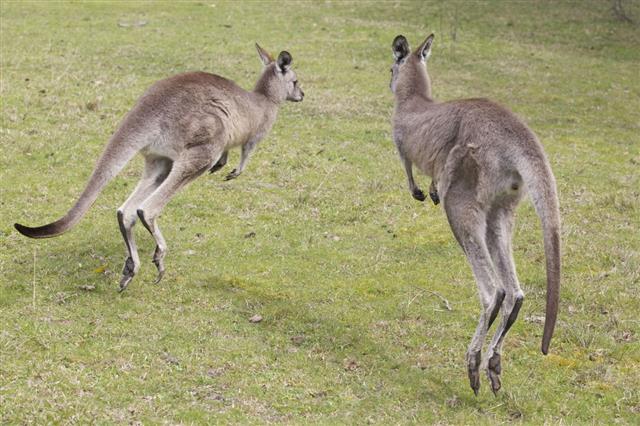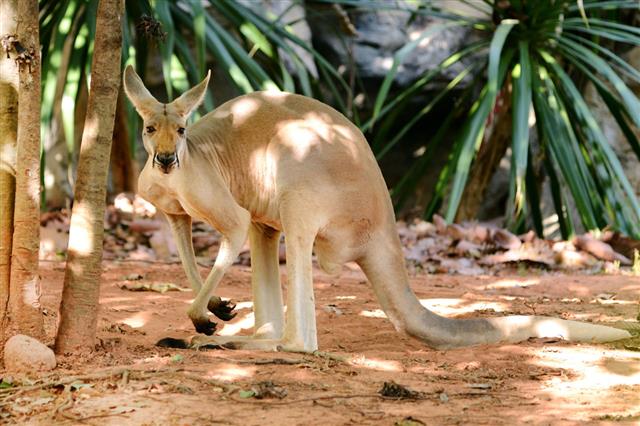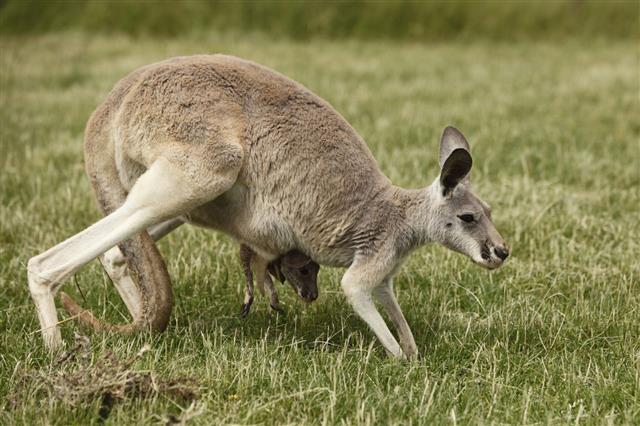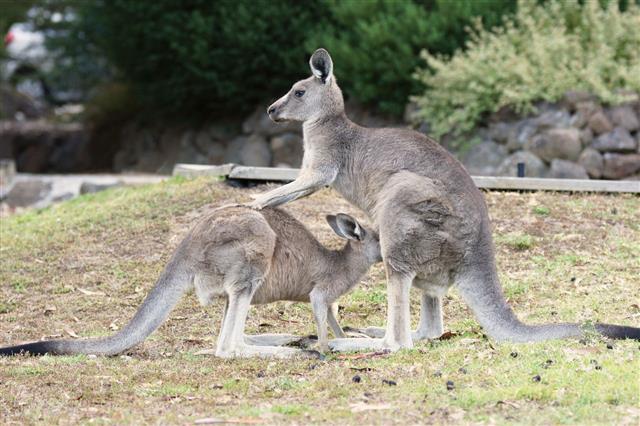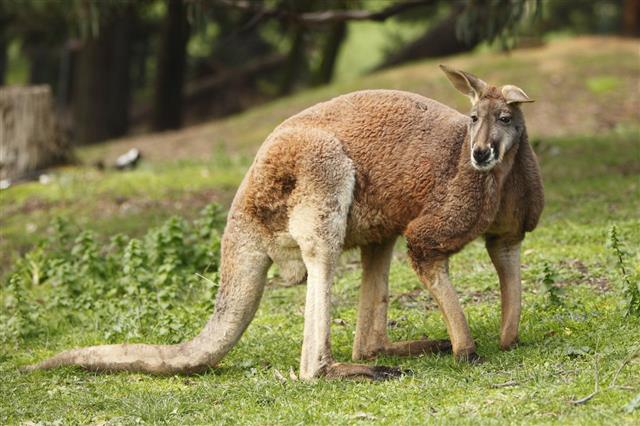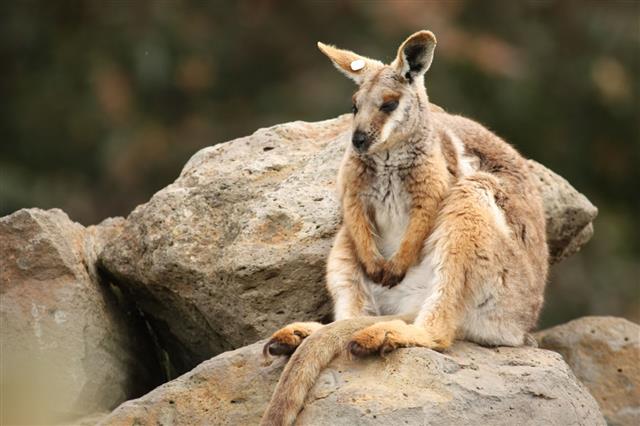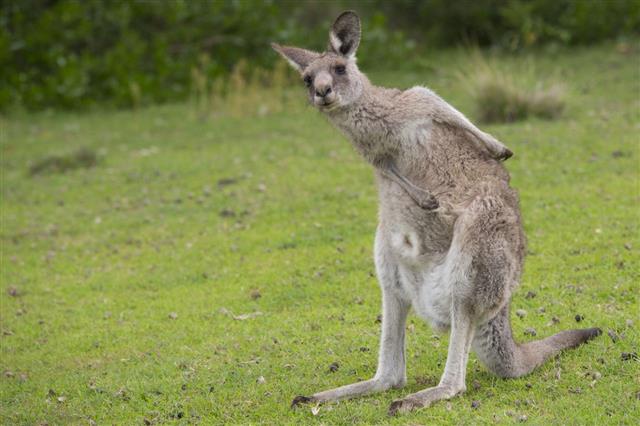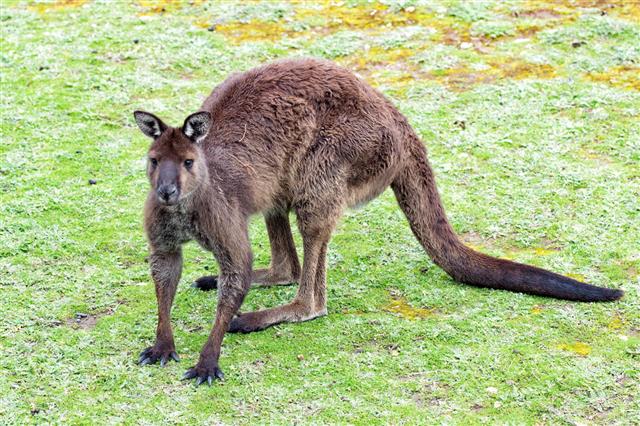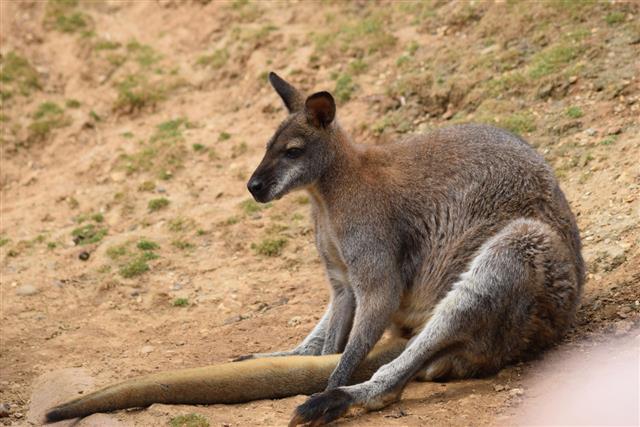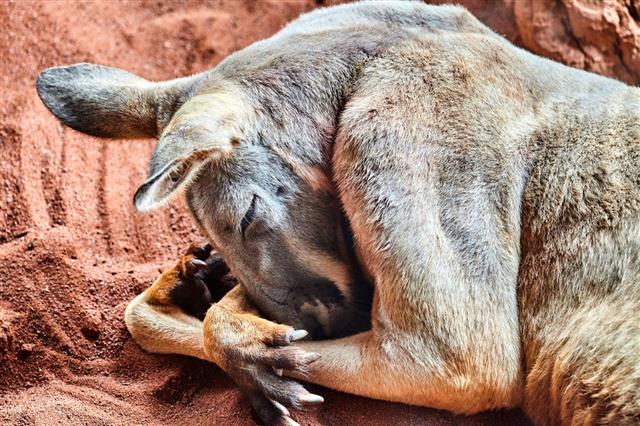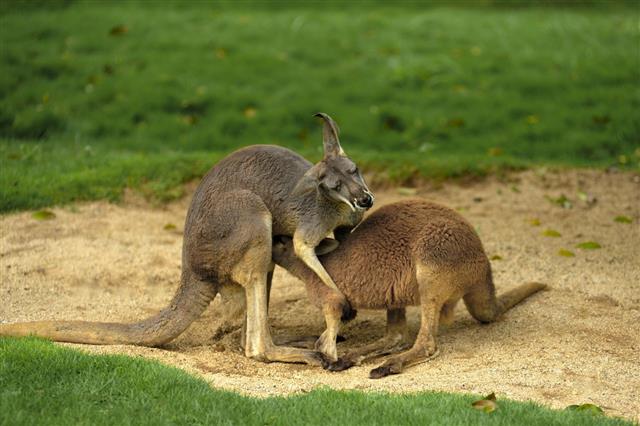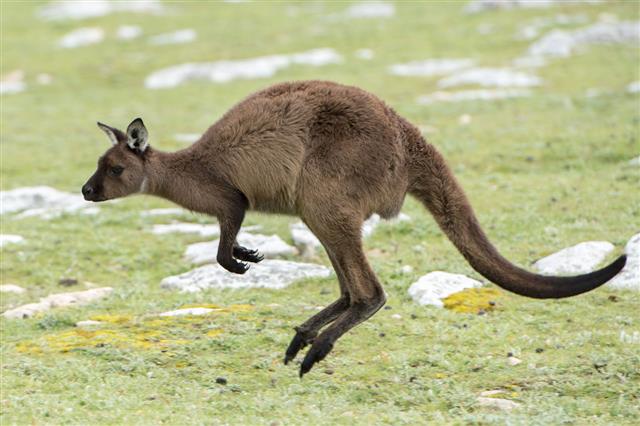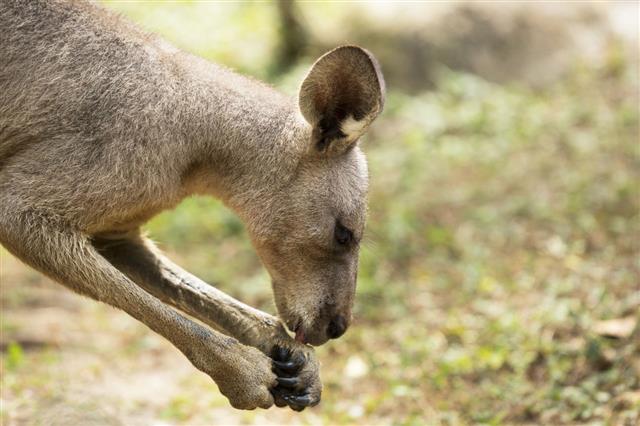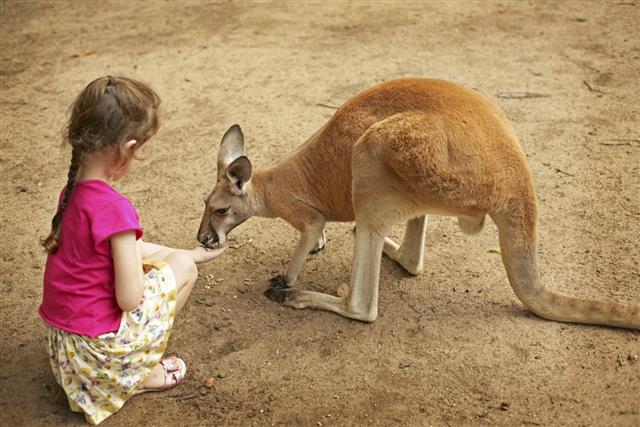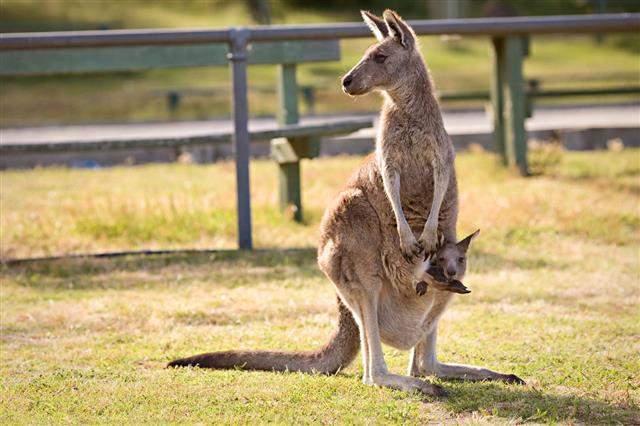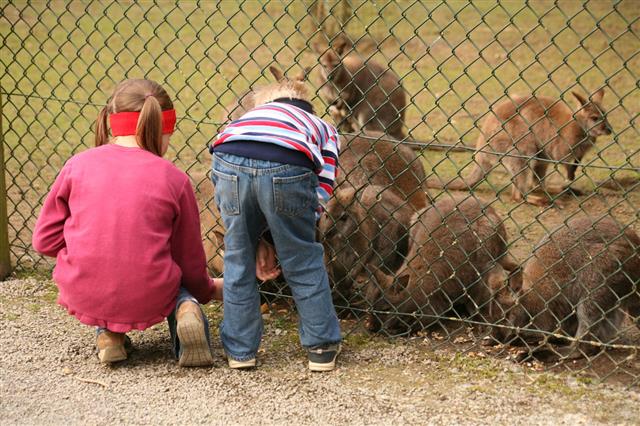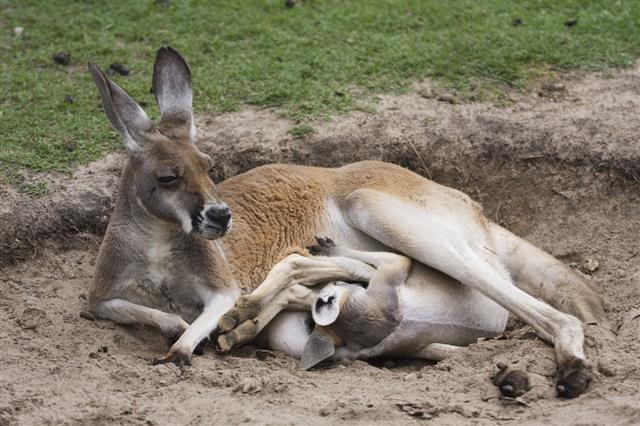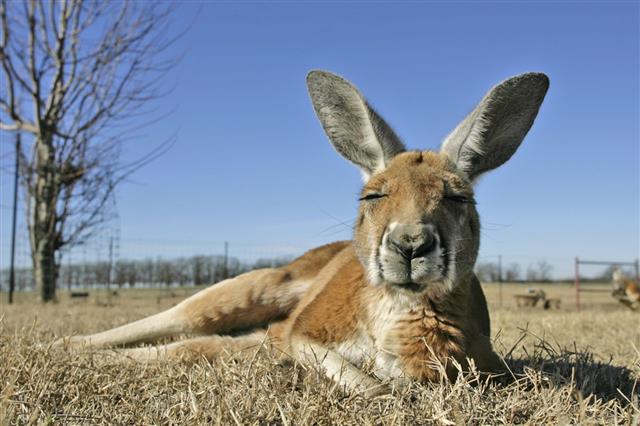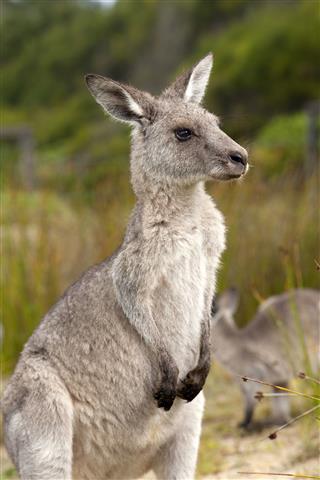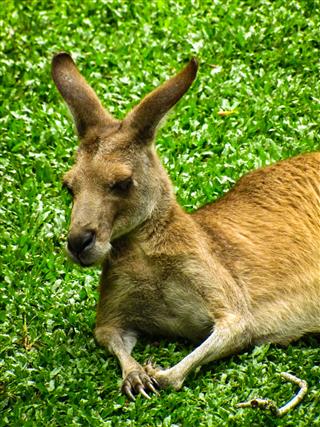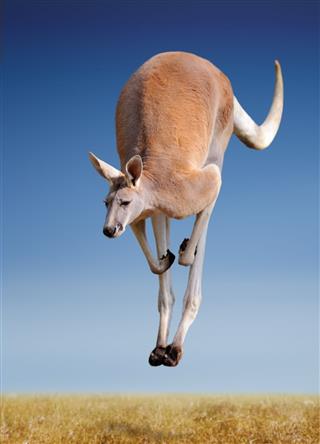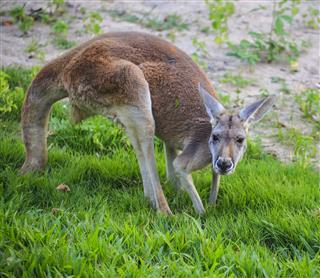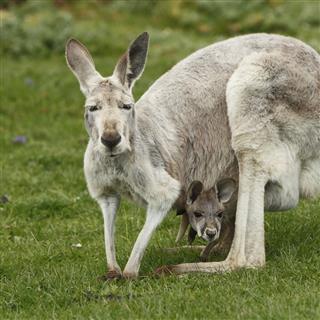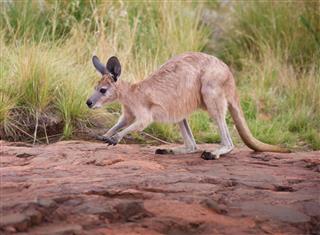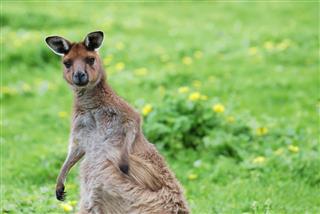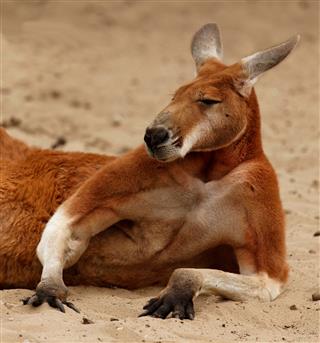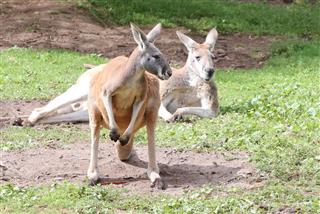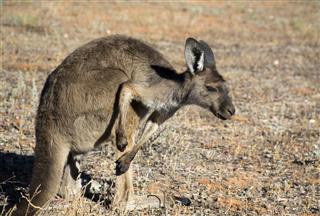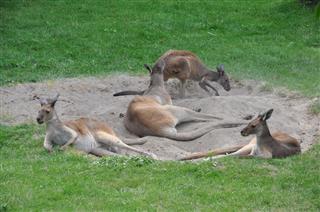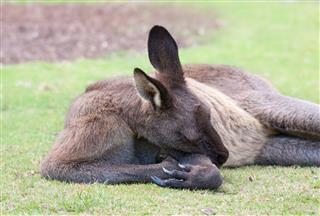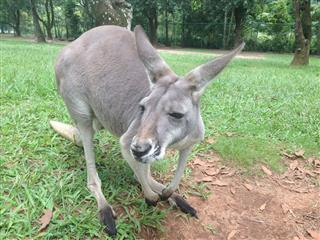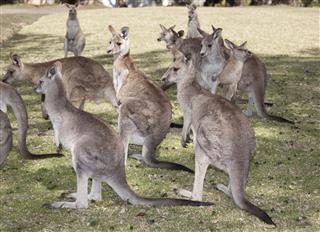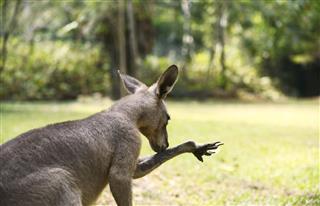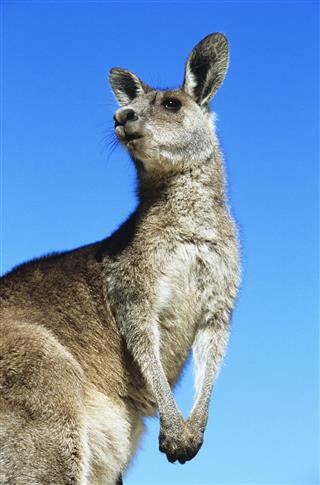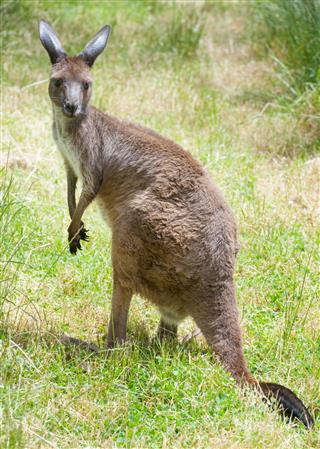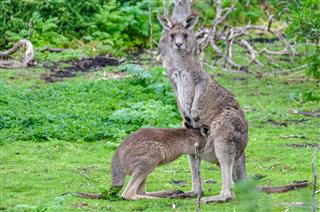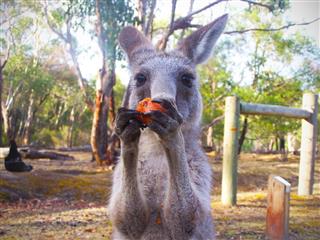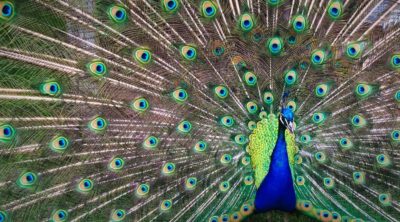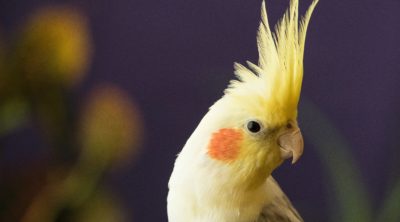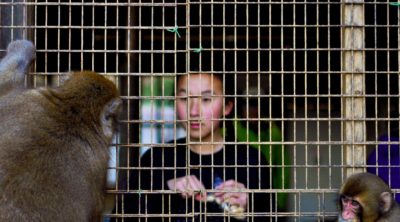
A kangaroo is a very unique and interesting animal. Surprisingly, it is quite a popular choice as a pet! PetPonder lists some facts about pet kangaroo care, and the important things to consider before getting one home.
Kangaroo Protection Coalition Says …
“In the United States and Canada, red and gray kangaroos are also bred for pets, and for sale to zoos and wildlife parks. Reports we receive indicate that the death toll is very high amongst these animals, as quite often they are restrained in small yards. Few overseas veterinarians know anything about them, and macropods do succumb very easily to stress-related diseases.
Wallabies and kangaroos cannot be housetrained, nor should they mix with domestic animals; they can catch diseases off them. Wallabies and kangaroos need a very big grassed area to live in, and company of their own kind.”
They are wonders from the Land Down Under! Kangaroos are those hoppy marsupials that we see springing their way across the dry, arid forests of Australia. Their long tails, impressive leaps, and cute babies sleeping in pouches makes them one of the most interesting animals to watch. Recently, their popularity is on the rise, as pets! Yes, they are found in many homes, just like domestic cats or dogs, lounging around in the yard or on the sofa. Although they can apparently be trained to live with other animals, it is still a bit perplexing to imagine them jumping about inside a house. But is it a good idea to domesticate them? Read on to know what things must be considered before keeping a kangaroo as a pet.
Cost
A kangaroo is an exotic animal, meaning that it won’t come cheap. The cost of a kangaroo goes into thousands of dollars; and that is just the purchasing cost. Apart from that, you will need to pay for the permit, the starter kit that most breeders provide with the animal to take home, the food, the cage, the vaccinations and other medical bills, etc.
An owner must be prepared to bear all these costs. Some permits also require an emergency disaster arrangement in case the animal goes wild or is injured in some disaster, which may require you to shell out more bucks. Taking all these costs into consideration is very important before thinking of getting a kangaroo home.
Living Requirements
A kangaroo is a big animal, having a minimum length of 6 feet, half of which is taken up by the tail. Thus, it is quite common knowledge that it will require a massive area to hop about.
It is definitely a wrong pet for apartment dwellers. Imagine a kangaroo in the house, jumping about on your bed, sofa, dining table, patio, kitchen counter, and any other big surfaces that it can find. Your ‘roo jumping on the dinner table and knocking your precious crockery down with its tail will not make for a very good scene, will it? This will require training, and lots of open space outside.
The other important necessity is fencing. A kangaroo running at moderate speed can jump more than 15 feet forward, and over 4 feet high. To prevent it from taking off hopping, the outside yard will require a tall and sturdy fence that the ‘roo can’t scale or knock down either. This will be an added cost and extra work; make sure it does not injure the animal on contact, and ensure that it is sturdy enough to not topple over if the ‘roo gives it a shove.
Diet
A kangaroo requires special feed, which is unfortunately yet quite obviously not available in just any pet or grocery store. It needs to be special ordered from places that do sell it. Being large in size, a kangaroo will have to be fed several times a day, which means that the feed will need to be ordered multiple times a year. Exotic feed for exotic pet equals exorbitant costs!
Health Care
A kangaroo owner will need to look long and hard for a vet who specializes in these unique animals. As kangaroos are basically wild animals and are rather uncommon as pets, it is very difficult to find a veterinarian who is familiar with their basic and emergency care. It is not viable to have a pet kangaroo if there is no emergency medical help available nearby. If the animal falls ill and does not receive medical attention, then it will suffer unnecessarily.
Temperament
Kangaroos are finally wild animals; even if they are trained from an early age and all that, they are still inherently non-domestic, jungle folk. So there is a chance that a pet ‘roo’s wild side may ‘hop’ up at any time, and may be unleashed on anyone standing in the vicinity.
Such a snapping episode may happen if the ‘roo has not been provided with its outdoor or emotional requirements. Also, kangaroos love to play box. So don’t be surprised if you are suddenly challenged to a game of fisticuffs by your pet. Although some say that this behavior can be trained out, how much of that training is really useful with an inherent trait? This sudden and bizarre (for humans) behavior will have to be taken into consideration and accepted.
Legality
There are restrictions regarding keeping kangaroos as pets, and the laws differ from state to state. There are some states that permit keeping kangaroos in the home, some require special licenses, while some restrict housing exotic pets altogether. The following are laws of some states specifying whether it is legal or illegal to own pet kangaroos.
✦ Colorado
Colorado allows its residents to own native reptiles and unregulated wildlife numbering to 6, no more. Kangaroos fall into the unregulated wildlife category. However, they cannot be kept for commercial purposes, and cannot be sold or traded. Keeping exotic pets for this purpose requires special permits, and these permits have very stringent restrictions.
✦ Georgia
Georgia has stricter restrictions on owning pet kangaroos. It bans their import, transfer, transport, sale, possession, or purchase without a valid permit. The permit must be issued by the USDA, and the owner of the permit must be over the age of 18. However, it is generally an illegal animal to own in this state.
✦ Oklahoma
The state of Oklahoma allows residents to keep pet kangaroos without permits or licenses. Although it falls into the category of exotics, it is still permissible to keep as a household pet.
✦ South Carolina
The state of South Carolina allows keeping kangaroos as domestic pets provided the ‘owner’ has a valid permit. The permit also requires caging requirements to be fulfilled, and a contingency plan in case of a disaster. Possessing a pet kangaroo without obtaining a valid permit is unlawful and illegal.
These are the states that have specified pet kangaroos in their laws. Either way, it is always a good idea to check with your state and city’s current laws in case they have been changed; you can also contact your local animal department. In some states, the Department of Game and Fish needs to be contacted, while in others, the Department of Agriculture or the Department of Environment need to be contacted.
